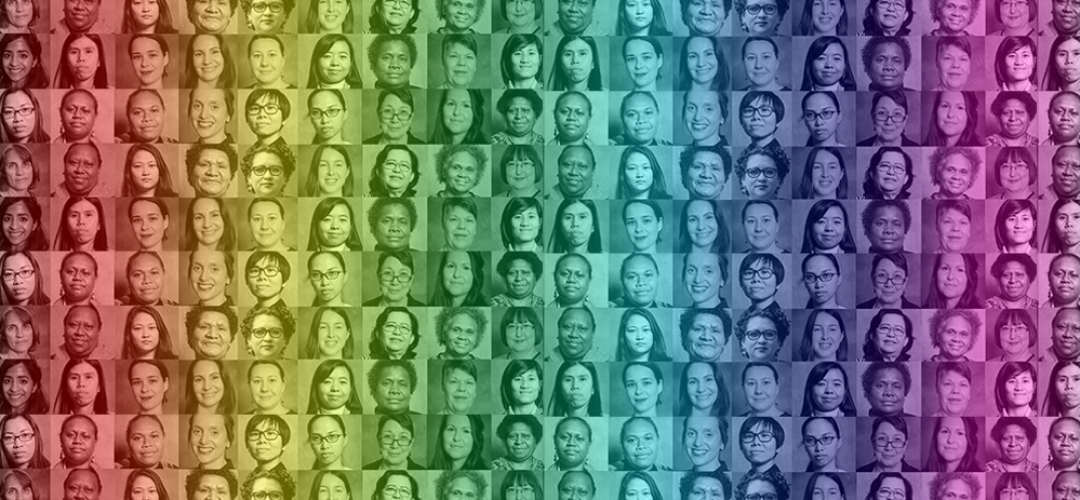The Fight for Transgender Rights

By Linda Filiai
Horrific experiences of violence and bullying are preventing lesbian, gay, bisexual and transgender (LGBT) people of the Pacific from achieving their potential and making more of a contribution to society.

Gillio Baxter (29)
A group of courageous young LGBT people shared their stories with women attending the 13th Triennial Conference of Pacific Women in Suva this week.
Gillio Baxter, 29, from Vanuatu was born male but feels deeply that she was supposed to be female. She told how she was bullied at school because she allowed her feminine side to show.
“In my days of High School, I was bullied, faced harassment and violence every day,” Baxter said.
She said at one incident, she was attacked by 45 students with the presence of a school teacher but nothing was done to stop the assault.
“That was April 18, 2005, I was in year 12 or form 6. That same year, I quit school only because going to school was a torture for me,” Baxter said.
She said, when she dropped out of school, her ability to access to job opportunity, health, education and many more were limited.
Another panellist, Viva Tatawaqa, shared her story of being disowned, unable to complete her studies and her struggle to find a space to feel love and be appreciated for who she is.
She said one of the ways that she managed to overcome the marginalization was to surround herself with positive people, those who would accept her regardless of her status.
People have many aspects to their identity but LGBT people often find the wider community wants to see them exclusively through their sexual orientation even though that is just a small part of the person that they are.
“There are certain spaces that I still feel like I need to wear the small hat of sexual orientation (rather) than other hats that I wear as a daughter, as a mum, as a sister,” she said.
Tatawaqa, who is proud to be a lesbian, wants her sexuality to be recognised as an important and positive part of her identity.
She said there were situations where her sexual orientation was neglected but she still gets to give contribution (Soli) to churches and many more.
“Even though our economic life is not really that stable but the expectations from the society and community are still high,” she said.
Ms Tatawaqa told the participants that she was looking forward for a satisfactory solution out of the conference.
Another panellist from Samoa, Vanilla Heather who was born female but feels male, shared the challenges faced by transgender men in Samoa.
“Most of all my Samoan transgender men are unemployed; they’re reluctant to apply for work for fear of being forced or expected to wear skirt or dress. They rather stay home or setup their own businesses than being the subject of jokes at work places.”
“Most dropped out from school at early age to avoid bullying, the homophobia and discrimination directed at them by other students and teachers at school,” he said.
Heather also shared how he was discriminated and was regarded as “tomboy” at school.
He said, some transgender men in Samoa left their homes to escape the social pressure and discrimination while some still continue to stay back and face the intolerance.
Noelene Nabulivou, Political Adviser for the LGBT civil society organisation Diverse Voices for Action for Equality (DIVA) said the outcome of the conference was both win and loss as transgender people did not achieve full recognition.
The original text of the outcome document for the Triennial Conference and the meeting of Pacific Ministers for Women which immediately followed it, specifically mentioned ’transgender’ people but, after a request from Nauru, it was dropped.
“We were concerned that transgender language was not able to be passed through in the final outcome document and that for us is a real loss because it was an opportunity for us to move something incredibly new,” Nabulivou said.
It is “an area where we feel the Pacific could lead because we have so many indigenous gendered identities that are respected and that people understand at national level,” Nabulivou said.
“We didn’t get that opportunity (at these meetings) but what we did get was ‘women in all their diversities,’ That is in the language from the Beijing declaration decades ago but really we don’t see it in the Pacific in a lot of our outcome documents. So that is a big win,” she said.
Ms Nabulivou promised DIVA and other CSOs will keep fighting for transgender people to be fully included in the future.
Ms Nabulivou said the other huge win at the Triennial conference was approval for two civil society organisations to represented alongside country delegations at the main negotiating table.
That move, initiated by Vanuatu, recognised the constructive role CSO’s have played in pushing for gender equality in the region.
Nabulivou has been one of a large group of Pacific women driving the CSO contribution over the past three decades.
The two places for CSOs at the negotiating table “is a real shift,” she said.











No Comments
No comments yet. You should be kind and add one!